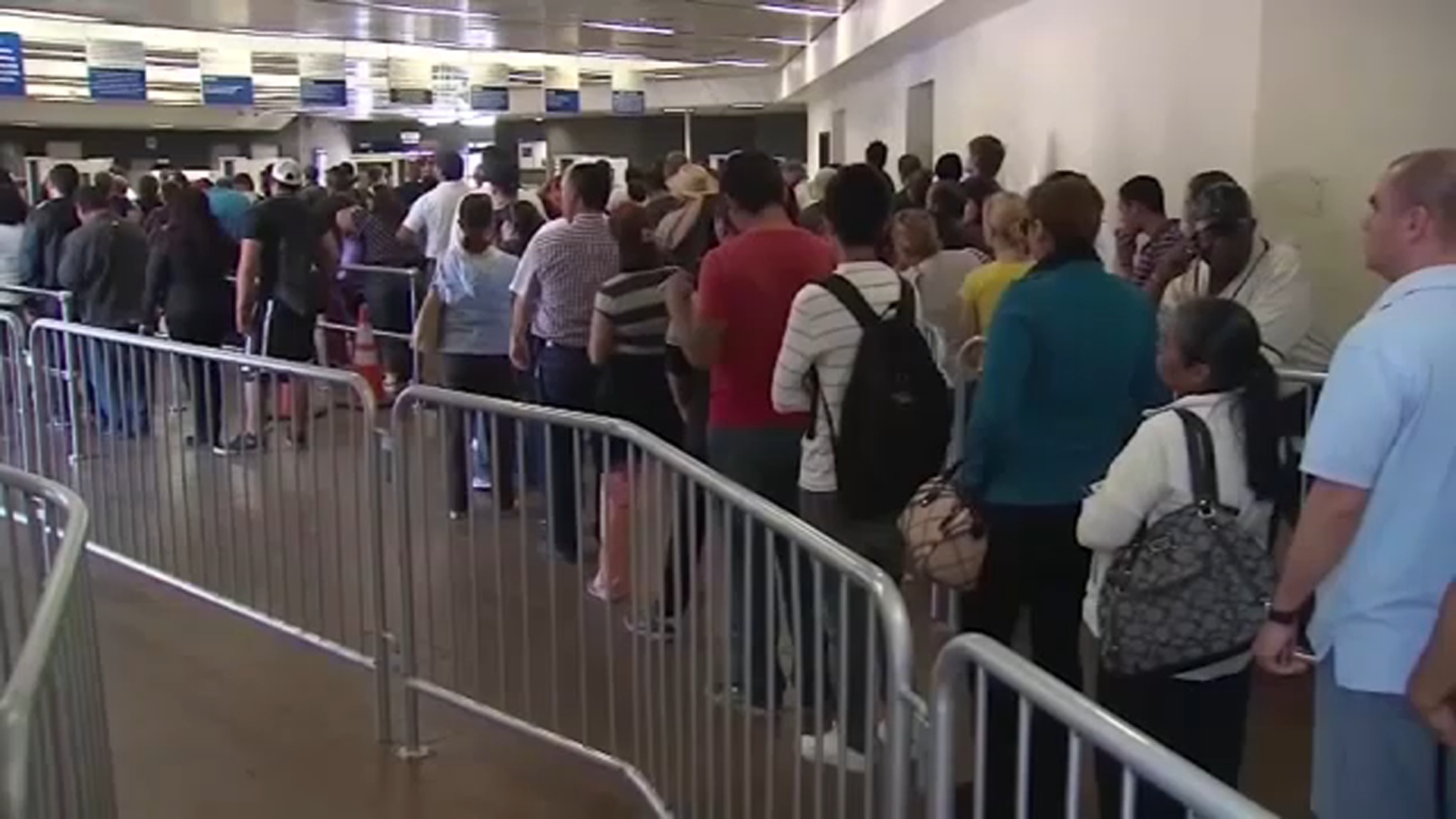How Texas' plans to arrest migrants for illegal entry work after SB 4 allowed to take effect

Texas' plan to arrest migrants who cross the U.S.-Mexico border illegally is now in effect after the Supreme Court allowed the state to enforce Senate Bill 4.
The nation's highest court allowed the state to go forward with the law, allowing any police officer in Texas to arrest migrants for illegal entry, and a judge can order them to leave the U.S.
The law was previously put on pause over a lawsuit led by the Justice Department, which argues that Texas is overstepping the federal government's immigration authority.
Justice Samuel Alito ordered an indefinite stay on the law on Monday, which was wiped away by Tuesday's order.
A federal judge in Texas blocked the law in a sweeping rejection last month, calling it a violation of the Supremacy Clause of the U.S. Constitution. Texas swiftly appealed and argued that it has a right to take action over what Abbott has described as an "invasion" of migrants on the border.
The court cleared the way for Texas to carry on with SB 4 on Tuesday.
Here's what to know:
WHO CAN BE ARRESTED?
The law allows any Texas law enforcement officer to arrest people suspected of entering the country illegally. Once in custody, migrants could either agree to a Texas judge's order to leave the U.S. or be prosecuted on misdemeanor charges of illegal entry. Migrants who don't leave could face arrest again under more serious felony charges.
Arresting officers must have probable cause, which could include witnessing the illegal entry themselves or seeing it on video.
The law cannot be enforced against people lawfully present in the U.S., including those who were granted asylum or who are enrolled in the Deferred Action for Childhood Arrivals program.
Critics, including Mexico President Andrés Manuel López Obrador, have said the law could lead to racial profiling and family separation. American Civil Liberties Union affiliates in Texas and some neighboring states issued a travel advisory warning of a possible threat to civil and constitutional rights when passing through Texas.
Abbott has rejected concerns over profiling. While signing the bill, he said troopers and National Guard members at the border can see migrants crossing illegally "with their own eyes."
WHERE WILL THE LAW BE ENFORCED?
The law can be enforced in any of Texas' 254 counties, including those hundreds of miles from the border.
But Republican state Rep. David Spiller, the law's author, has said he expects the vast majority of arrests will occur within 50 miles of the U.S.-Mexico border. Texas' state police chief has expressed similar expectations.
Some places are off-limits. Arrests cannot be made in public and private schools; places of worship; or hospitals and other health care facilities, including those where sexual assault forensic examinations are conducted.
Migrants ordered to leave would be sent to ports of entry along the U.S.-Mexico border, even if they are not Mexican citizens.
Amrutha Jindal, executive director at Lone Star Defenders Office, said her organization expects the law will be enforced in border counties. Her office already represents migrants who have been arrested since 2021 under a more limited Texas operation that has charged thousands of migrants with trespassing on private property.
IS THE LAW CONSTITUTIONAL?
The Justice Department, legal experts, and immigrant rights groups have said the measure is a clear conflict with the U.S. government's authority to regulate immigration.
U.S. District Judge David Ezra, an appointee of former President Ronald Reagan, agreed in a 114-page order. He added that the law could hamper U.S. foreign relations and treaty obligations.
Opponents have called the measure the most dramatic attempt by a state to police immigration since a 2010 Arizona law - denounced by critics as the "Show Me Your Papers" bill - that was largely struck down by the U.S. Supreme Court. Ezra cited the Supreme Court's 2012 Arizona ruling in his decision.
Texas has argued that the law mirrors federal law instead of conflicting with it.
WHAT IS HAPPENING ON THE BORDER?
Arrests for illegal crossings along the southern border fell by half in January from record highs in December. Border Patrol officials attributed the shift to seasonal declines and heightened enforcement by the U.S. and its allies. The federal government has not yet released numbers for February.
Tensions remain between Texas and the Biden administration. In the border city of Eagle Pass, Texas, National Guard members have prevented Border Patrol agents from accessing a riverfront park.
Other Republican governors have expressed support for Abbott, who has said the federal government is not doing enough to enforce immigration laws. Other measures implemented by Texas include a floating barrier in the Rio Grande and razor wire along the border.










